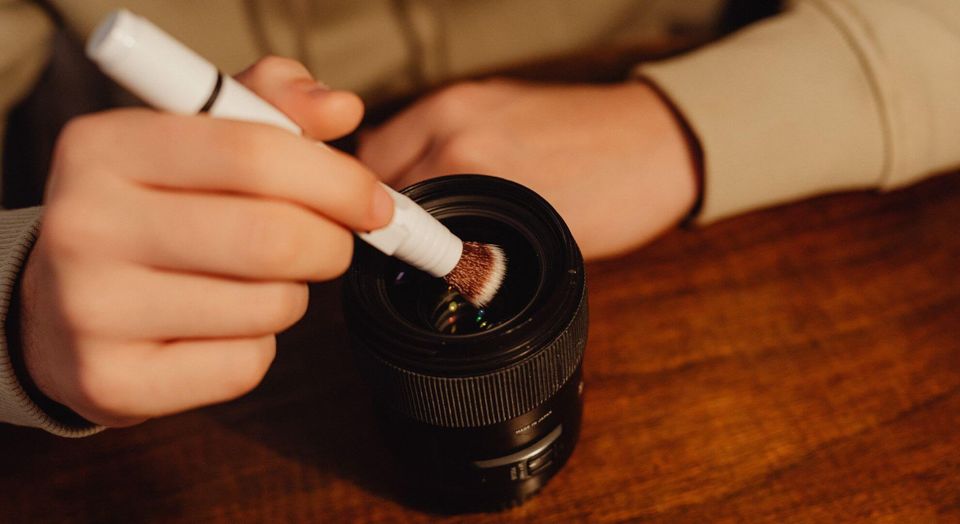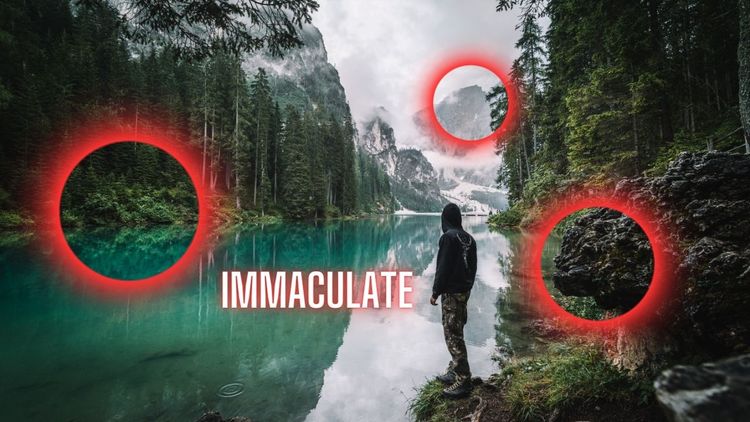10 Camera Care Tips For Beginners - Digital Camera Maintenance

Taking good care of your digital camera is an important step in ensuring that you get the most out of your device.
As a beginner, it can be difficult to know how best to maintain and take care of your camera.
Fortunately, this article provides helpful tips and tricks on how to properly care for your digital camera and keep it in top condition.
Camera Care Tips For Beginners Checklist
- Hold Your Camera The Right Way
- Use A Water-Resistant Camera Bag
- Use A Rain Cover For Camera While Shooting
- Always Use UV Filters
- Protect & Inspect SD Memory Cards
- Turn Off Camera After Shooting
- Take Out Batteries
- Don't Use Your Hands Or Shirt To Clean
- Avoid Canned Air
- Don't Touch Lens Glass & Protect LCD Screen
If you're a budding photographer, learning how to hold your camera the right way is essential for getting the perfect shot.
Taking proper care of your camera will also help it last longer and keep it in good condition. Here are some tips and tricks that can help you get started with taking care of your camera.
Step 1: How To Hold Your Camera The Right Way
When handheld, make sure to support the weight of the camera and lens with your left hand while curling your right hand around the grip.
This helps to ensure that all parts are secure and steady when trying to capture great shots.
Additionally, avoid holding onto only one part of the camera as this could lead to unwanted shaking or blurring in photos.
Instead, try holding onto two main points on both sides for optimum stability!
Lastly, be gentle with your equipment - especially when carrying or storing it away when not in use.

Step 2: Use A Water-Resistant Camera Bag Or Carrying Case
When it comes to taking care of your camera and keeping your gear safe, the most important thing is to ensure that it remains dry.
A water-resistant camera bag or a carrying case can help protect your valuable equipment from any unexpected rain or moisture because cold and wet weather can damage your camera body.
Look for a camera bag with good zippers, many compartments, and waterproof exterior fabric.
This will enable you to store all of your gear securely and keep them safe from potential damage.
Additionally, using a silica gel inside the bag can also help absorb any additional moisture if the weather takes an unexpected turn for the worse.
By following these tips and tricks, you can rest assured that you’re doing all you can to take proper care of your camera and help protect it in any weather condition.
With the right precautions in place, you’ll be able to enjoy capturing memories without worrying about what Mother Nature has in store!
Step 3: Protect Your Camera While Shooting Outdoors
When shooting outdoors, it is important to take the necessary precautions to protect your camera from the elements.
Camera care should be taken seriously, as dust and moisture can cause significant damage to your equipment.
Here are some tips and tricks for protecting your camera while shooting outdoors in any environment.
For starters, a rain cover provides maximum protection for your camera from snow, rain or dust.
This will keep both the lens and body of your camera dry and clean so that you can continue taking photos without interruption.
Additionally, you should make sure to keep your hands clean and dry when handling your camera outside.
Moist hands will transfer dirt onto the lens or even cause condensation on internal components within the device which can be very damaging over time.
Finally, try to avoid having too much dust getting on the lens by avoiding contact with other objects while shooting outdoors.

Step 4: Always Use UV Filters To Protect Your Lens
Having a great camera is only part of the equation when it comes to capturing amazing photographs.
As a photographer, you must also ensure that your lens is properly taken care of. One simple way to protect your lens from scratches and other damage is by using a UV filter.
UV filters are an inexpensive yet effective accessory that can be used on any camera lens.
They do not alter the image in any way, but rather serve as an additional layer of protection against dust, dirt, and moisture.
A UV filter will also help reduce glare and reflections while shooting outdoors or in bright conditions – perfect for landscape photographers who often shoot in direct sunlight!
When it comes to protecting your precious equipment, there’s no harm in taking extra precautions – especially when they don’t cost much!
PRO TIP: Always make sure you buy the correct UV filter thread size for your lenses.

Step 5: Protect & Regularly Inspect Your Memory Cards
It is important to take good care of your memory cards if you want them to last.
Memory cards are the lifeblood of your digital camera, so ensuring they stay in top condition can save you from a great deal of frustration down the road. Here are some tips for protecting and regularly inspecting your cards.
To start, investing in a sturdy case for storage is highly recommended as it will protect your memory cards from any potential damage that may occur due to being dropped or exposed to dust and dirt.
Furthermore, it's a good idea to inspect the card itself often for any debris or dirt that may be on its chip or metal contacts.
Dirt build-up can stop the card from working properly, so make sure there is no visible dirt present before using it again.
Step 6: Turn Power Off Before You Clean Your Camera
Caring for a camera is essential in order to ensure that it lasts and produces quality results.
Whether you're new to photography or an experienced professional, one of the most important things you can do when caring for your camera is to remember to turn it off before cleaning or making any adjustments.
Taking steps like this can help protect the interior components from wear and tear and prevent small mistakes from damaging its delicate mechanisms.
Step 7: Take the Batteries Out & Don't Let Them Just Sit In Your Camera
Taking care of your camera is an important part of capturing great images.
One easy tip to keep in mind is to take the batteries out when you aren't using your camera or between uses and don't let them just sit in your camera.
Doing so will give you peace of mind that you'll be ready when it's time to capture a moment.
It's not recommended to let dead batteries sit in your camera for too long, as they can start leaking acid which can damage the circuitry and render your camera unusable.
Additionally, if the battery has been sitting idle for a while it may have lost some charge making it difficult to get started next time you need it.
If you're planning on traveling with your camera, make sure you take the batteries out before putting it away as temperature fluctuations can cause unnecessary wear and tear on them - particularly if it's hot outside!

Step 8: Don't Use Your Fingers Or Hand Or A Shirt To Clean The Lens
When it comes to lens cleaning, it's important to not just use your fingers or hand.
Not only can oils and dirt from your hands be transferred to the lens, but static electricity can build up and leave a residue on the lens surface.
Using an item such as a shirt is also off-limits due to dirt and dust particles that could scratch the lens if rubbed directly against it.
To properly clean the lens, an air blower and lens brush should be used first.
This will help remove any loose dust particles that are stuck on the surface of the lens without risking any scratches or damage that could occur with manual removal.
After this is done, a quality cleaning cloth should be used for further cleaning of smudges or spots left behind by fingerprints or other sources of contamination.
Step 9: Avoid Canned Compressed Air
Are you looking for a quick and easy solution to clean your electronics?
It’s tempting to reach for the canned compressed air but be warned: not all brands are created equal.
Cheap brands of canned air often use inferior chemicals that can damage the coating of lens glass on cameras or other optics.
In order to ensure that you’re taking proper care of your electronics, invest in a high-quality brand of canned air.
Although it may cost more upfront, it will save you money in the long run by preventing costly repair bills or replacing damaged items.
Look for labels like “safe on plastics” or “non-flammable propellant” and read reviews before purchasing any product.
If you are still unsure, just don't use canned compressed air at all! You will be just fine sticking with a high-quality air blower and lens brush.
Step 10: Don’t Touch Your Lens Glass And Protect LCD Screen
When it comes to taking good care of your devices, it is important to practice basic hygiene.
This includes protecting the lens glass and LCD screen from fingerprints and smudges that can be caused by oily skin.
To ensure your device performs optimally, you should always protect its delicate components.
One of the best ways to do this is by investing in an LCD screen protector.
These are inexpensive products that are designed to fit over your device’s LCD screen and prevent it from rubbing against surfaces or getting covered in fingerprints and smudges.
Not only will this help preserve the look of your device, but it will also make sure that your LCD screen stays protected from dirt, dust, scratches, and moisture.
Bonus Step: Get Your Camera & Gear Professionally Maintained
Are you a passionate photographer looking for ways to ensure your camera and gear stay in optimal condition?
Professional camera maintenance can help extend the life of your equipment and keep it running smoothly.
One of the best ways to protect your investment is to have your gear professionally maintained.
Professional cleaning services can get rid of dust, dirt, and other debris that could accumulate over time and cause damage to your equipment.
This is especially important if you use high-end cameras which require more specialized care than regular point-and-shoot models.
Additionally, they can perform detailed inspections on all components, ensuring that everything works properly without any issues.
Going with a professional service may be slightly more expensive than doing the work yourself, but it guarantees quality results that will keep your camera in top shape for years to come.

How To Protect Your Lenses
When it comes to taking amazing photos, protecting the lenses of your camera is essential.
Lenses are extremely sensitive and should be handled with utmost care. To protect your lenses from damage or scratches, here are some helpful tips:
Always Use Lens Hood
First, always use a lens hood when shooting outdoors. Lens hoods provide protection against dust and dirt that can scratch the lens surface over time.
They also help to reduce glare and improve overall image quality by providing shade for the front element of the lens.
Use UV Filter to Protect Your Camera Lens
Another tip is to use a UV filter on your camera's lens at all times.
UV filters absorb ultraviolet light which can cause haziness in images or even damage to the lens itself over time if not filtered out properly.
When not in use, make sure you store your lenses with a cap on them to further protect them from scratches or other external debris.
Don’t Touch Your Lens Glass
Protecting your lenses is essential to ensure they last a long time and don’t get damaged.
Avoid touching the lens glass directly as this can leave smudges and make it more prone to condensation.
A great way to avoid this is by storing them in a safe, dry place away from any damp or humid conditions.
Absorb Moisture And Condensation
Silica gel pads are an ideal solution for absorbing moisture before it can damage your lenses - simply place them inside the case where you store your lens when not in use and they will absorb any wetness that accumulates over time.
Additionally, using a microfiber cloth on the glass of the lens can help reduce smudges and helps keep it clean and clear for optimal performance.
Remember, taking care of your lenses will save you money in the long run!
How To Take Care Of Your Camera
Starting a photography journey can be intimidating.
After all, you'll need to find the right camera and learn how to use it properly.
But even if you have the perfect camera in hand, there's still one important factor that will determine its longevity: how well you take care of it.
Here are some essential tips for taking care of your camera so that it lasts for years!
Turn Your Camera Off Before You Do Anything Else
First, be sure to turn off your camera before doing anything else.
This may seem like an obvious step, but forgetting to power down can cause major problems down the line.
Turning off your device prevents any accidental damage from occurring while changing lenses or cleaning the sensor.
Doing this can help maximize battery life and help keep your device running smoothly over time.
Direct Sunlight Or Lasers Can Damage Your Sensor
Also, be aware of where you place your camera while shooting; direct sunlight or powerful lasers can damage the sensor if used too close to the lens.
Be sure to handle your camera with care; even something as small as a finger smudge on the lens can affect image quality.

Use A Strong Camera Strap
Taking good care of your camera is essential if you want to ensure it lasts for years.
Without proper care, cameras can suffer from dirt and damage, leading to expensive repairs or even total replacement.
One of the best ways to help protect your camera is by using a strong and reliable camera strap with neck support.
Camera straps have been around for decades, providing photographers with an easy way to transport their equipment without fear of dropping your camera or causing damage.
Not only are these straps designed for comfort but they also provide extra security when you’re carrying around bulky camera gear.
Many straps feature adjustable clips that fit onto the body of your camera so that it won’t slip off while in use.
This type of strap provides extra support and stability when shooting outdoors or on uneven terrain.
Take Good Care Of Your Memory Cards
Taking good care of your camera is essential if you want to keep capturing amazing photos and videos.
Whether it's a point-and-shoot, DSLR, or mirrorless model – taking steps to maintain its condition will help you get the most out of your gear.
One important part of camera care is taking good care of the memory cards that store your images and videos.
To ensure their longevity, the metal contacts on SD cards should be clean before insertion into the device.
Investing in a memory card case is also a great way to protect them from dust and physical damage when not in use.
Keeping multiple memory cards around also means you won't have to worry about running out space for those important shots or moments!
Be Careful While Changing Lenses
Taking good care of your camera is important for maintaining the quality of your photographs.
To properly take care of your camera, you should be careful while changing lenses.
When changing lenses, make sure to align the two dots located on the mount, and don’t forget to unlock the lens first before taking it off or putting it back on.
You should also hear a click when you put the lens back in which indicates that it has been secured in place.
To ensure that no dirt gets into your camera's sensor, avoid changing lenses in dusty environments and instead opt for more enclosed areas like an indoor studio.
If dust does get into your sensor, use specially designed air blowers with compressed air to blow away any particles that may have gotten stuck inside.
Don't forget to clean both sides of each lens with a microfiber cloth after every use as well!

Best Tips To Clean Your Gear - Digital Camera Maintenance
In conclusion,taking proper care of your camera is key to ensure that it lasts a long time and you get the best quality photos.
With these 10 Camera Care Tips For Beginners, you should now be armed with the knowledge of how to properly store your gear and maintain your digital camera.
Make sure to keep these tips in mind the next time you take out your camera and practice them regularly.
We hope you loved our camera-care tips and gained a lot of knowledge, please consider subscribing to our cause so we can keep providing you with fresh, free daily content!
Your friend,
Ben





